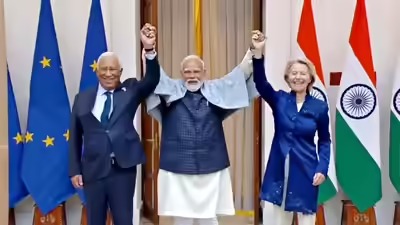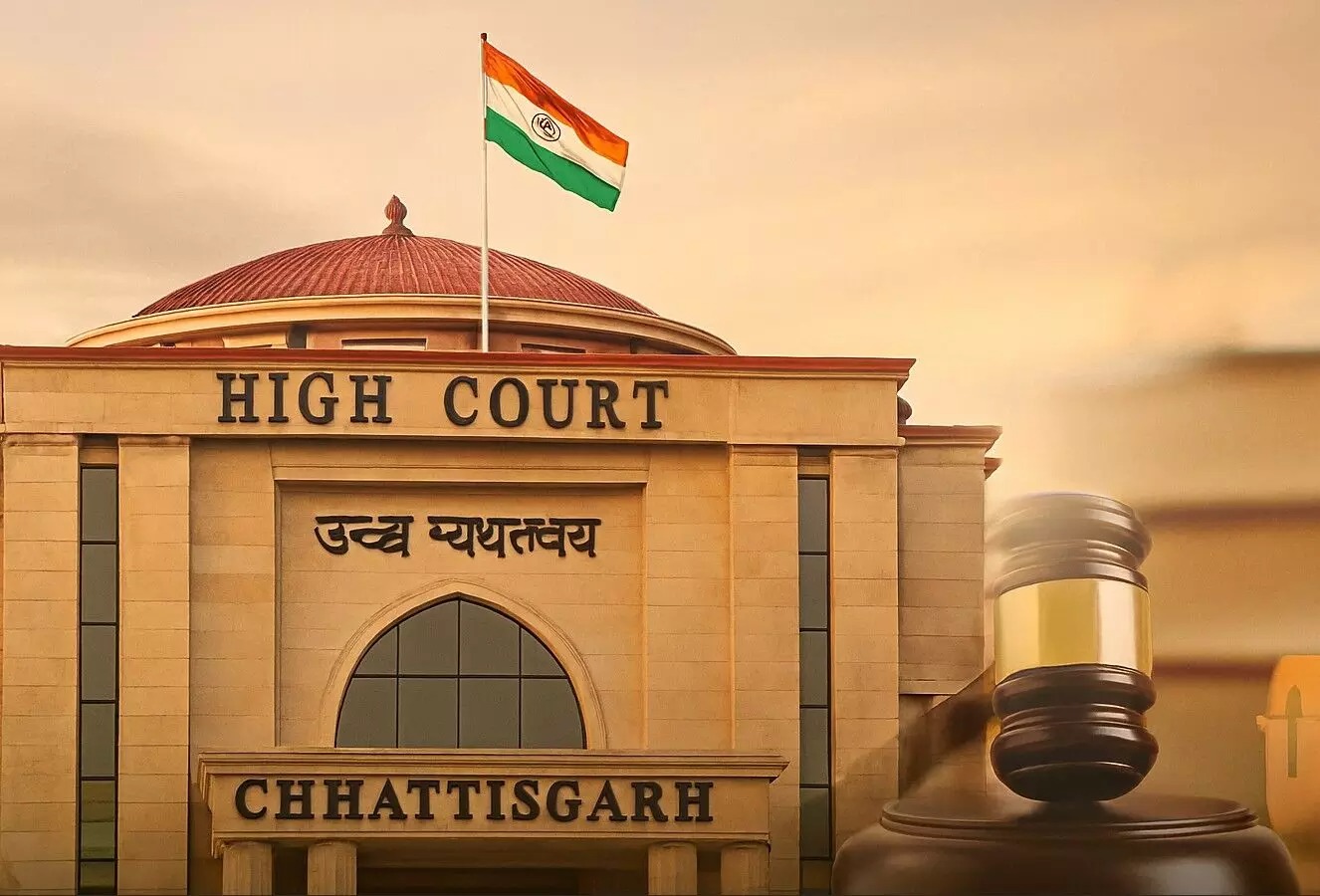S.K. Phaujdar, J.@mdashThe factual background of the present second appeal is as follows:
Certain lands belonged to three brothers, namely, Prakash Nandan Singh, Thakur Sher Singh and Sardar Singh. Prakash Nandan died in 1934.
His widow, Vidyawati, died in 1978. The only daughter of Prakash Nandan and Vidyawati, namely, Prakashwati, died in 1976 and she left behind three sons, namely, Vijai Kumar Singh, Anil Kumar Singh and Rajiv Kumar Singh. The aforementioned Sardar Singh left a son, Digendra Kumar Singh. A suit was filed by the three sons of Prakashwati that Vidyawati was given the suit-property on the basis of family arrangement in 1935 between herself and her two brothers-in-law, Sardar Singh and Sher Singh, for her maintenance. She was in possession of the house and was realising rent from the tenants living in the house. Before her death in 1978, Vidyawati had executed a will in favour of her three grandsons for the said house and after the death of Vidyawati, they became the owners of the suit-property. Sher Singh and Sardar Singh, however, made a prayer illegally for mutation of their names in the municipal records for the suit property and their names were mutated illegally. The Plaintiffs sued for declaration of title and confirmation of possession on the suit-property. They had made a sale of the suit-property in favour of Ram Murti Devi and after sale, she was in possession as owner thereof. The suit was contested by Thakur Sher Singh and his nephew Digendra Kumar Singh on the ground that Vidyawati was only a limited owner in terms of the family arrangement and her right could not have ripened into that of a full owner and she had no right to make a will for the suit-property nor had the Plaintiffs any right to sell the same to Ram Murti Devi.
2. The suit was decreed against the Defendants in Suit No. 694 of 1980 on 19.3.1988 by order of the IVth Addl. Civil Judge, Meerut. The first appeal that was filed before the IIIrd Addl. District Judge, Meerut, numbered as No. 354 of 1988, was also dismissed by the judgment and decree dated 11.1.1994 and, thereafter, the present second appeal has been filed.
3. The only point for consideration in the appeal is whether Section 14(1) or Section 14(2) of the Hindu Succession Act would apply in this case on the above facts. Learned Counsel also confined their arguments on this sole question. There is no dispute between the parties that the family of the parties is governed by the Mitakshara school of law or that the property in question was a coparcenary property. There is also no dispute that Vidyawati''s husband died in 1934, leaving no son. It is also admitted that after his death, the other two brothers and the widow agreed through a paper by way of family arrangement that the house in question shall be left in the possession of Vidyawati for her residence. A further sum of Rs. 450 per annum would be paid to her towards maintenance and it would be open for Vidyawati to induct tenants in the house and to realise rent from them.
4. Learned Counsel for the Appellant submitted that the will of Vidyawati in favour of her grandsons would only be of any legal effect had Vidyawati been an absolute owner of the property at the time of her death. He drew a distinction between the two sub-sections of Section 14 of the Hindu Succession Act (for short, ''the Act''). For easy reference, the provisions are being quoted below:
14. Property of a female Hindu to be her absolute property.--(1) Any property possessed by a female Hindu, whether acquired before or after the commencement of this Act, shall be held by her as full owner thereof and not as a limited owner.
Explanation. --- In this sub-section, "property" includes both movable and immovable property acquired by a female Hindu by inheritance or devise, or at a partition, or in lieu of maintenance or arrears of maintenance, or by gift from any person, whether a relative or not, before, at or after her marriage, or by her own skill or exertion, or by purchase or by prescription, or in any other manner whatsoever, and also any such property held by her as stridhana immediately before the commencement of this Act.
(2) Nothing contained in Sub-section (1) shall apply to any property acquired by way of gift or under a will or any other instrument or under a decree or order of a civil court or under an award where the terms of the gift, will or other instrument or the decree, order or award prescribe a restricted estate in such property.
5. It appears that Sub-section (1) makes a female Hindu a full owner of the property possessed by her at the date of commencement of this Act; but Sub-section (2) makes an exception to this general rule and states that the aforesaid general principle shall not apply to any property acquired by way of gift or under a will or under any other instrument or under a decree or order of a civil court or under an award where the terms prescribe a restricted estate in such property. The learned Counsel for the Appellants submits that the right by way of possession in favour of the widow, Vidyawati, was created by the family arrangement only and it was a case to be covered by Sub-section (2) of Section 14 and not by Sub-section (1). He places reliance on a decision of the Supreme Court in Smt. Naraini Devi v. Ramo Devi and Ors. AIR 1976 SC 2198. It was a case where a widow acquired a right under an award dated 4.1.1946 and the right was restricted to the extent of receiving rent of a house property and the husband had died in 1925 before the enactment of the Hindu Women''s Rights to Property Act. The Court held that the widow had no pre-existing right or interest in the house and the case was covered by Section 14(2) and not by Section 14(1). The learned Counsel also relied on a decision of the Allahabad High Court in Smt. Narayani Devi v. Sonpal and Ors. 1986 ALJ 146. In this case, it was held that there was no presumption that every single property obtained by a Hindu widow by testamentary or intestate succession from her husband must be deemed to have been acquired by her for her maintenance. If the will or instrument or decree which prescribed a restricted estate in property did not merely recognise pre-existing right of a Hindu widow, then Sub-section (2) of Section 14 would be attracted and the law would deprive the widow of the benefit contemplated under Sub-section (1) of Section 14. In this case-law, however, it was observed that if it was by way of recognition of a pre-existing right, Sub-section (1), rather than Sub-section (2) of Section 14 would apply.
6. Learned Counsel for the Respondent submitted that the family arrangement did not create a new right for the widow, Vidyawati. What was given to her was in acceptance of her right of maintenance and was in recognition of a pre-existing right and it would not be a case covered by Section 14(2) of the Act. He relied on the decision of the Supreme Court again in the case of V. Tulsumma v. Shesa Reddy AIR 1977 SC 1944 . The decision of the Supreme Court in
7. We are. therefore, left with the only question if Vidyawati had any preexisting right in the property left by her husband in the year 1934. We are faced with a situation at a time when neither the Hindu Succession Act nor even the Hindu Women''s Rights to Property Act were in existence. The Hindu society at that time was still guided in the matter of succession by the scriptural laws. I have consulted Mayne on Hindu Law and it appears that the Hindu society had accepted the right of the widow to succeed as heir to her husband. ''Mulla'' also deals with the matter and has interpreted the text as allotting an estate to widow on the death of her husband. Thus, it can always be accepted that Vidyawati as a Hindu Mltakshara widow had at least a right to receive a maintenance from the property left by her husband. The family arrangement makes it further clear that only this right already existing in Vidyawati was accepted by the two brothers of her husband and she came in possession of the suit-property in lieu of her right of maintenance.
8. Once this is accepted, the law is clear that the grant by way of family arrangement was made in favour of Vidyawati in recognition of her pre-existing right and it was not a creation of any new right in her by the grant. Section 14(1) of the Hindu Succession Act will squarely apply in this case and not Section 14(2) as proposed to be urged by the learned Counsel for the Appellants.
9. There being no other point involved in the appeal, the same stands dismissed.

